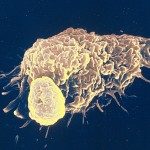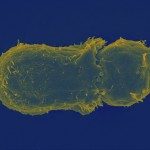Link to Pubmed [PMID] – 7876567
J. Immunol. Methods 1995 Feb;179(2):193-202
Autoantibodies directed against the ribosomal proteins P0, P1 and P2 (P proteins) are specific for systemic lupus erythematosus (SLE) and there are some evidences that they could be related to the neuropsychiatric manifestations of the disease. In this study, a multiple antigen peptide (MAP) carrying four copies of the C-terminal peptide (13 residues) of the P2 protein, which is a common epitope of the three P proteins, was prepared for use in an ELISA assay. It was employed to detect antibodies directed against the ribosomal P proteins in 102 SLE patients and the results were compared with those obtained using immunoblotting (IB). With this new ELISA, antiribosomal P protein antibodies were found in 15/102 SLE sera. These results correlated well with the results of IB. Furthermore, we confirmed that naturally occurring antiribosomal P protein antibodies are directed mainly against the epitope containing the C-terminal sequence and shared by the three P proteins. MAP appears to be an excellent coating agent for ELISA assays designed to detect anti-P antibodies. Further experiments showed the superiority of MAP, compared to the free peptide, in the detection of weakly positive sera. This ELISA can also be used for the serological follow-up of SLE patients.


